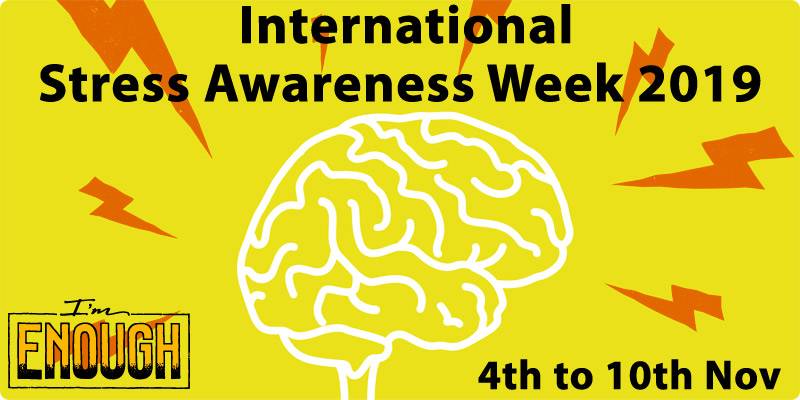International Stress Awareness Week 2019 – 4th to 10th Nov

International Stress Awareness Week came about in 2018 when the International Stress Management Association [ISMA UK] decided to expand the annual event from 1 day to an entire week. National Stress Awareness Day was traditionally held on the first Wednesday in November in the UK/USA and has turned out to be the day that attracts the greatest activity on social media.
What Is Stress And How Does It Affect Us?
Stress is a part of life and it is unlikely that all but a very few can avoid it completely. Some stress is actually essential for all humans – however, too much or poorly managed stress causes harm to our mental and physical health and relationships. Modern life has brought about a surplus of stress factors. When we are faced with a challenge, or a threat to our well-being, the body experiences stress. When you’re dealing with struggles in your life that leave you in a state of constant worry, stress can be a real killer. Failure to deal with stress in your life effectively can lead to serious health problems, including mental illness, increased blood pressure, heart disease, and a decline in your immune system.
Healthy Stress Awareness And Management Strategies Are The Key To Improved Health
The theme for this year is ‘RESILIENCE – the Power to Succeed’. And of course, this ties in very strongly with I’m Enough’s focus on Digital Resilience. Like it or not, stress is here to stay, and so is the digital social environment that particularly young people are exposed to. So if we accept that ignoring the issues is not going to make them disappear, what then can be done to cope with stress in our lives?
Firstly, being mindful of your response to stress is very important. By observing your response to isolated, healthy stress situations can make you aware if ever you find yourself in this state for prolonged periods. Chronic ongoing stress can, if not treated, develop into mental health issues such as anxiety and depression, as well as having negative impacts on the body.
Some of the tips recommended for dealing with stress are:
Tackling stress from multiple angles can make a huge difference in your mental and physical health. Above all, you need to realise that you are enough just as you are. You are much stronger and more capable than you may think. Use this week to reflect on your own validity and value, and begin to take the actions required to build your resilience and claim your power to succeed.



